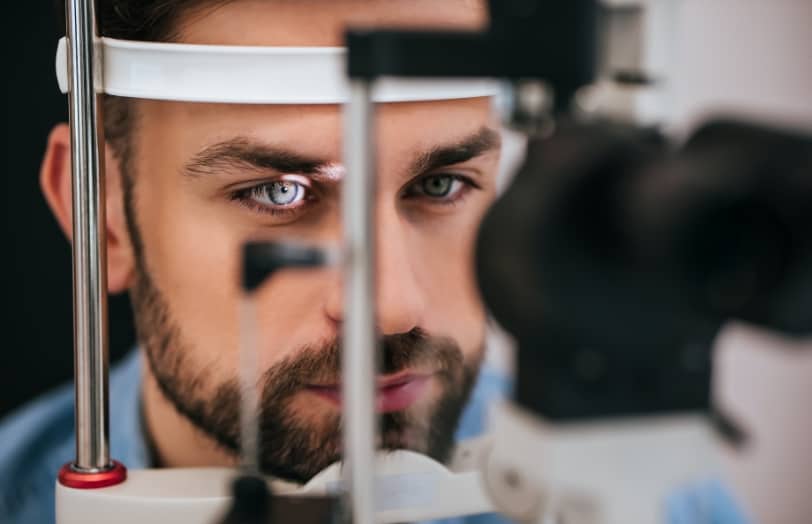Cataracts
Can I have surgery on both of my eyes at the same time?
Duration 2:06
Having a surgical procedure performed on both of your eyes at the same time is called bilateral surgery. Professor Andrew Luff, Ophthalmic Surgeon and Founding Consultant, discusses why bilateral surgery is becoming more common and who might or might not be suitable for it.
Having a surgical procedure performed on both of your eyes at the same time is called bilateral surgery. Professor Andrew Luff, Ophthalmic Surgeon and Founding Consultant, discusses why bilateral surgery is becoming more common and who might or might not be suitable for it.
Make an enquiryTranscript
Operating on both eyes on the same day, strictly speaking, known as bilateral, both eyes, bilateral cataract surgery, or sometimes immediate sequential bilateral surgery, literally one eye after the other, has traditionally been a very contentious area. But in recent years, a couple of things have really changed the overall philosophy here. The first is that surgery is so much safer than it used to be, thanks to better techniques and instrumentation and our use of an antibiotic routinely in the eye at the termination of the procedure. The second thing, somewhat paradoxically, is COVID. When there became very good reasons not to bring our patients into hospital twice because of the risks of infection, and many of us saw that as a moment where we should reconsider our options. So there are now patients for whom I would often say you are best suited for same day bilateral surgery. The exceptions would be if we anticipate a potentially challenging operation or there are obvious complexities. We’d always like to see the first eye settle before we decide to start with the second eye. And the second is, occasionally, and this is often with some form of extended depth of focus lens. We might be choosing a slightly different outcome between the two eyes and only when we know the outcome of the first eye do we decide whether, for example, you’d like more distance vision or near vision without spectacles in the second. For some patients, those who really need rapid visual rehabilitation, then of course having both eyes dealt with on the same day means they both heal together, and within a few days, life can go back to normal. If there’s a gap of a week or so between eyes, that has to be factored into the recovery period. Again, that may matter to you and it may not. These are all individualised, personalised choices.













